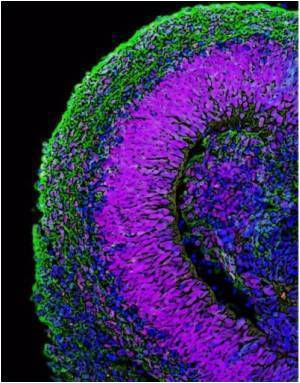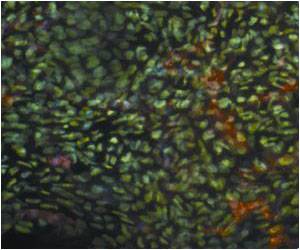Adult mouse fat cells and neural cells have been reprogrammed into stem cells by Scientists at the Monash Institute of Medical Research, Australia.

The research appears in the journal Cell Transplantation.
The study's lead author, Dr. Paul J. Verma, said: "Induced pluripotent stem cells have revolutionized cell reprogramming. One challenge is to find the most appropriate cell for reprogramming. Our study demonstrated that both neural stem cells (NSCs) and adipose tissue-derived cells (ADCs) from adult mice expressed genetic pluripotency and could differentiate into the three germ layers, endoderm, mesoderm and ectoderm. The ADCs were the most amenable to reprogramming."
According to Dr. Verma, iPS cells have been shown to have many of the hallmarks of embryonic stem cells. Choosing which cells were best for reprogramming required looking at the ease of access and ease of derivation and growth of the cells in vitro. They concluded that it was likely that certain iPS cell lines will have a "higher propensity to differentiate into certain lineages (cell types)."
"This variation may be related to different levels of programming achieved. Many different cell types need to be investigated to generate many iPS lines for specific differentiation and different research purposes," added Dr. Verma.
The research team concluded that ADCs represent a more clinically relevant cell type and that fat tissue can be easily accessed and grown easily and rapidly in cultures. Fat tissue cells, when reprogrammed, can also be prolific. The authors cited a study previously published in Cell Transplantation suggesting that 100 ml of human fat tissue could yield one million clinically useful stem cells.
Advertisement
"There is considerable potential in the generation of iPS cells for the treatment of a number of disorders. Finding the optimal source of cells to start with, is of paramount importance and this study provides reassuring data on a highly favourable source," said Dr. Paul Sanberg, coeditor-in-chief and Director of the Center Of Excellence for Aging and Brain Repair at the University of South Florida.
Advertisement













